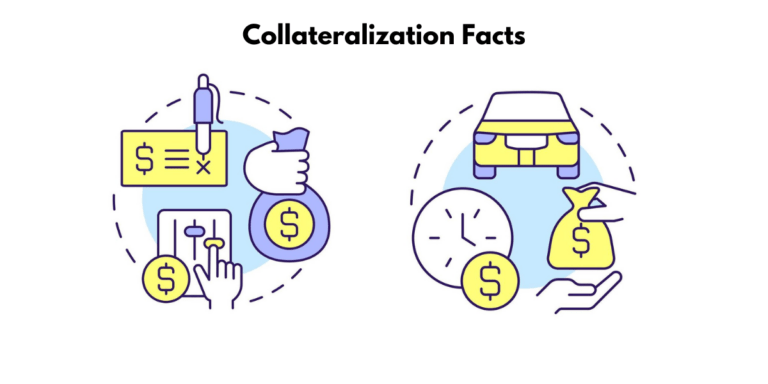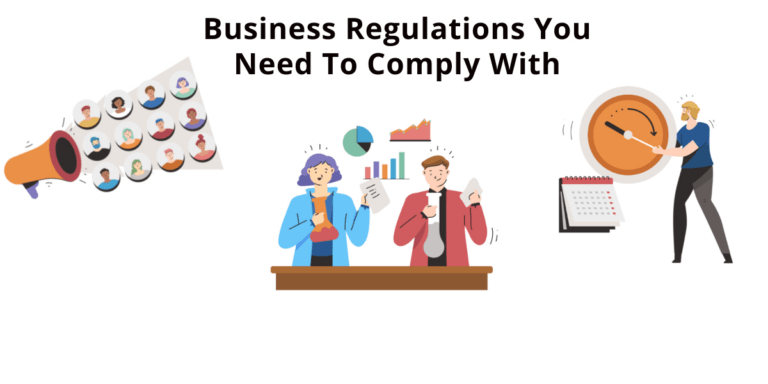Business Expense Management: Effectively Accounting Business Expenses
Effective Business Expense Management
If you are a business owner, you know that effective expense management is crucial to the success of your enterprise.
There are many ways to cut costs and save money, but it can be difficult to know where to start.
That’s why we’ve put together this helpful guide with some of the most effective tips for managing your business expenses.
We hope you find these tips useful and that they help you save money and run your business more efficiently!

What is business expense management?
Management of business expenses is the process of monitoring, recording, and managing business expenses. This includes understanding what expenses are tax deductible, tracking spending patterns, and creating a budget.
Proper management of business expenses is important for both small businesses and large corporations. By keeping track of expenses, businesses can save money and ensure they comply with tax laws. Additionally, expense management can help businesses make informed decisions about where to allocate their resources.
Several software programs and apps are available to help with the management of business expenses. For example, QuickBooks is a popular accounting software that can track expenses and generate reports. Other apps, such as Expensify and XpenseTracker, allow users to track expenses on the go and submit receipts for expense reimbursement.
What business expenses do you need to track?
Business expenses you should track include:
- The cost of goods sold includes inventory, supplies, and materials.
- Operational expenses such as rent, utilities, and payroll costs.
- Travel expenses such as airfare or mileage for business trips.
- Meals while conducting business activities.
- Lodging costs while traveling on business trips or visiting clients/customers in person.
- Business equipment purchases like computers or phones are used exclusively for work purposes.
Why is business expense management important
Management of business expenses is the process of planning, organizing, and controlling business spending.
Businesses need to track their expenses to make informed decisions about where to allocate their resources.
There are many software applications available that can help businesses manage their expenses.
Some of these applications are designed specifically for the management of business expenses, while others are general-purpose accounting or financial software programs that include features for tracking and managing business expenses.
It enables you to deduct legitimate business expenses and save money on taxes
Management of business expenses enables you to deduct legitimate business expenses and save money on taxes by understanding the different types of expenses eligible for the deduction, such as self-employment tax, home office expenses, business mileage, meals, and entertainment expenses.
By understanding how to define deduce eligible business expenses and taking advantage of opportunities where applicable, you can reduce your tax liability resulting in savings for yourself or your business.
It helps you track and organize expenses for easy reporting
Management of business expenses helps to track and organize expenses for easy reporting. It lets users track their spending, where it’s going, and when payments are due.
This makes it easier to reimburse employees quickly and understand where money is being spent. Users can view detailed reports on spending trends over time so they can make informed decisions about their budgeting strategy.
It ensures that you only pay for expenses that are necessary for your business
Management of business expenses helps ensure that you only pay for expenses necessary for your business by providing a way to track and organize your business expenses.
By tracking and organizing your business expenses, you can quickly reimburse employees, see what and where you’re spending money, and maintain a healthy cash flow. Additionally, proper accounting allows for valuable tax deductions that can reduce your adjusted gross income.
It allows you to keep track of money spent and earned
Management of business expenses helps you keep track of money spent and earned by providing a convenient way to track your expenses. This allows you to quickly reimburse employees for work-related expenses and see what money is spent on which items or services. Additionally, it helps ensure that all transactions are accounted for correctly so that you have an accurate picture of how much money is coming in versus going out.

It allows you to track changes in business expenses and assets over time
Business expense management helps you to track changes in business expenses and assets over time. It makes it easy to track what you are spending and where your money is going.
With this information, you can analyze trends and make better financial decisions. You will also be able to monitor the progress of projects more effectively and detect any unexpected spending or revenue changes that could affect your bottom line.
It helps you identify areas where your business can save money
Expense management can help you identify areas where your business can save money by providing instant access to key financials such as income, expenses, and outstanding invoices. By tracking your spending habits, you can see where you can cut back on expenses without affecting the quality of service or product you provide. This will allow you to reduce costs without impacting profitability or hurting customer satisfaction.
It enables you to keep track of payments and receipts for tax purposes
Management of business expenses helps with tax tracking because it allows you to keep track of all your business expenses. This makes it easier to calculate your taxable income and ensures you meet all the requirements for filing taxes. Additionally, an expense tracker can help you quickly reimburse employees for their expenses so they can be filed correctly with the IRS.
It helps you to keep track of human trafficking and other criminal activities
Management of business expenses can help you to keep track of human trafficking and other criminal activities by providing an organized way to record all business-related expenses. By keeping detailed records of your transactions, you will be able to identify any unusual spending patterns that could indicate illegal activity. Additionally, having accurate records will make it easier for you to report any suspicious activity on Form 1099-MISC or Form 1099-NEC, as required by the Internal Revenue Service (IRS).
It helps you to keep track of assets and capital expenditures
Management of business expenses helps you to keep track of assets and capitalize definition expenditures by providing a platform for tracking, organizing, and managing your business expenses. This makes it easier to reimburse employees quickly and see what and where they’re spending. Additionally, it allows you to keep track of assets such as computers or furniture purchased for business use so that they can be accurately reflected in financial statements. Finally, it helps you track capital expenditures such as leases or loans taken out for business purposes.
It helps you to stay organized and on top of business expenses
Management of business expenses helps businesses stay organized and on top of their expenses by tracking them accurately. This allows owners to understand their cash flow better, gauge the profit margin of their business, and provide a clear financial record to lenders, improving their chances of securing funding. Furthermore, good accounting software can help separate unreimbursed expenses from deductible ones, allowing owners to tag specific line items by expense category (such as personal expense or entertainment). This helps them report appropriately at the end of the tax year and examine costs on a granular level for potential cost savings.
How do small businesses keep track of expenses?
Small businesses have a lot of expenses. From inventory to rent, there are a lot of moving parts that can make it difficult to keep track of where your money is going.
This can be especially true for small businesses that don’t have the luxury of an accounting department. So how do you ensure you’re staying on top of your finances?
Here are a few tips:
1. Create a system to track business expenses
Small businesses have to account for many expenses, from the cost of goods sold to marketing and advertising expenses. An effective way to keep track of all these costs is to create a system for tracking business expenses.
One way to do this is to set up a separate bank account for your business, depositing all the income from your sales. Then, every time you incur a business expense, you can simply write a check or make a debit card purchase from this account. This will help you keep track of your expenses and ensure that they are all accounted for.
2. Track all business expenses
Small businesses have to track all of their expenses to stay afloat. This includes both revenue and expenses. Revenue must be greater than expenses, or the business will not profit. There are a few different ways to keep track of expenses.
One way is to use accounting software. This can be either installed on a computer or accessed online. There are many different options available,
3. Use a business expense report
An expense report can help small businesses track their expenses by providing an easy way to keep track of what and where they are spending money. It makes it easier to reimburse employees quickly and allows business owners to see how much they spend on travel, meals, and lodging. Additionally, self-employed workers can use an expense report to deduce definition of certain expenses from their taxes.
4. Keep receipts and other records of business expenses
Small businesses must account for many expenses, from office supplies to travel expense. Keeping track of all these expenses can be daunting, but it’s essential for effectively managing your finances.
One of the best ways to keep track of business expenses is to ensure you have all the relevant documentation. This means keeping receipts for everything, whether it’s an online purchase or a physical item. You should also keep track of any mileage you accrue for business travel.
Keeping track of your business expenses shouldn’t be too difficult if you’re organized. By staying on top of your finances, you can ensure that your business runs smoothly and efficiently.
5. Ask for and receive receipts for business expenses
As a small business owner, keeping track of your expenses is important. One way to do this is by asking for and receiving receipts for all expenses. This will help you keep an accurate record of your spending and ensure that you can deduct all of your eligible business expenses come tax time. Additionally, if you ever have any questions about a particular expense, having the receipt on hand will make it much easier to track down the much needed information.
Another way to keep track of your business expenses is using a business credit card. This can be a great way to keep track of expenses, as most credit cards will provide you with a monthly statement detailing your spending. This can be helpful in two ways: first, it can help you keep track of your spending and ensure that you are not overspending; second, if you ever need to dispute a charge, having the statement on hand can be very helpful.

6. Use an expense tracking app
An expense tracking app can help small businesses keep track of expenses by organizing receipts, classifying costs, and integrating with popular accounting software.
This provides a comprehensive view of all spending, allowing business owners to track their finances and maximize deductions come tax deduction time easily. It also makes it easier to pay employees and vendors quickly while avoiding any discrepancies in reporting.
7. Keep track of business expenses for each project
Small businesses must keep track of their expenses to manage their finances effectively. There are several ways to do this, but one of the most effective is maintaining separate records for each project. This lets you see exactly where your money is going and makes it easier to identify and correct any problem areas.
8. Understand what expenses are tax deductible
The IRS defines business expenses as those costs that are ordinary and necessary to carry out business in your industry. Some of the most common types of deduction expenses for small businesses include payroll expenses, employee benefits, home office expenses, insurance premiums, rent or mortgage payments, retirement plans (including 401(k) contributions), depreciation of equipment used in your business operation and interest expense on loans used for business purposes. Additionally, taxes paid on profits from your business can be deducted from your income tax return.
9. Track business expenses by category
Most small businesses have limited resources, so it is important to manage expenses carefully. One way to do this is by tracking business expenses by category. This helps you see where your money is going and identify areas where you can save.
There are some ways to track business expenses by category. One option is to use a spreadsheet or accounting software. This can be a helpful way to keep track of expenses, but it can be time-consuming.
Another option is to use business expenses tracking app. This can be a quick and easy way to track expenses on the go. Many different apps are available, so be sure to find one that meets your needs.
10. Keep track of business assets and liabilities
Small businesses have to keep track of their expenses to stay afloat. There are many ways to do this, but one of the most effective is using a software program to help you keep track of your assets and liabilities. This way, you can see where your money is going and ensure you are not overspending in one area.

Tips on how to effectively manage business expenses
As a business owner, you know that every penny counts. You also know that effective expense management is key to the success of your business. There are many ways to manage your business expenses effectively. Here are a few tips:
Determine whether the expenses are deductible
When managing business expenses, one of the most important things to remember is whether or not the expenses are deductible. This can greatly impact your bottom line, so it’s important to be aware of the rules and regulations surrounding deductions.
There are a few general guidelines to keep in mind regarding deductibility. First, expenses must be considered “ordinary and necessary” to be deductible. This means that they must be common and accepted in your industry and help carry out your business activities. Additionally, expenses must be incurred during the tax year to be deducted.
A few common business expenses are often deductible, including advertising and marketing costs, office supplies, travel expenses, and employee salaries.
Keep records that are easy to understand
Keeping records that are easy to understand can help manage business expenses because it provides an accurate record of expenses incurred and transactions taking place during the business’s operation. This allows businesses to calculate their gross receipts accurately, expenses incurred, and purchase prices of assets acquired for use in the business.
By having access to accurate records, businesses can track where their money is going and make informed decisions about how best to allocate resources toward areas that will help them succeed. Additionally, readily available records will make it easier for businesses to meet their filing obligations with government agencies such as the IRS if necessary.
Consider using an expense tracker app
Using an expense tracker app can help manage business expenses by simplifying the process of keeping track of receipts, organizing costs into categories, and even integrating with popular accounting software.
Businesses can save time and effort by using an app that provides these features while maximizing their deductions come tax time. Additionally, having automated workflow tools that allow users to set auto-approval rules can save time when dealing with multiple employees submitting expenses. Multicurrency support may also be beneficial for businesses doing a lot of overseas business transactions.
An expense tracker app can help businesses manage their expenses more efficiently by providing automatic workflow rules, multicurrency support, and integration with popular accounting software packages like Quickbooks Online or SAP Concur Expense.
Check the IRS’s guidance on business expenses
Checking the IRS’s guidance on business expenses can help with managing them because it provides valuable insight into how to correctly classify them to maximize tax savings without risking an IRS audit.
By following the guidelines provided in publications such as IRS Publication 334, Tax Guide for Small Business (For Individuals Who Use Schedule C or C-EZ), IRS Publication 463, Travel, Entertainment, Gift And Car Expenses, IRS Publication 535 Business Expenses, IRS Publication 587 Business Use Of Your Home, you can ensure that your business expenses are recorded correctly and maximized tax savings while avoiding an IRS audit.
Only claim the proven expenses
Business expenses can quickly add up, so it’s important to keep track of them and ensure that you only claim the expenses you have incurred. There are a few key things to remember when managing your business expenses effectively.
Document the purpose of each expense
Documenting the business purpose of each expense can help manage business expenses effectively by providing clear, complete, and accurate information about each transaction, including who attended or benefited from the expenditure, what purpose it served, and why it was necessary. When and where it took place in your documentation, you can ensure that anyone who reviews it understands why the expense was made.
By documenting the purpose of each expense thoroughly, you can better track how funds are being used and ensure they are being used appropriately. This will help reduce unnecessary spending while ensuring that necessary expenditures are justified by their purpose. Additionally, having clear records of all transactions will make it easier to reconcile accounts if needed later down the line.
File the right tax forms for your business expenses
As a business owner, it’s important to keep track of all your expenses and ensure they are properly accounted for come tax time. Filing the right tax forms can help maximize deductions and minimize your tax liability.

FAQ
Here are some of the most frequently asked questions about business expenses:
What is business expense insurance?
Business expenses insurance is a type of start up business insurance costs policy that covers the costs associated with business-related expenses such as equipment damage or loss.
Business expenses insurance can protect against losses related to business expenses, such as replacing damaged or lost items. It may also cover additional costs associated with an accident, such as legal fees or medical bills. Business owners should consider purchasing insurance policies that cover their specific needs and risk profiles to protect themselves from financial losses resulting from unexpected expenses related to their business.
What is an unincurred business expense?
Unincurred business expenses are expenses that have not yet been incurred by a company but are expected to be in the future.
For example, when a company purchases equipment for use in its operations, it may be able to deduct this cost as unincurred business expenses on the income statement. The company can subtract this cost from its revenue before calculating its taxable net income for that period. To qualify as an unincurred business expense, the company must reasonably expect to incur this cost in the future.
Can business expenses be carried forward?
Yes, business expenses can be carried forward to future tax years. This is especially beneficial if your business has a lot of fluctuating expenses from year to year. By carrying forward your business expenses, you can ensure you’re not overpaying taxes in any given year.
- Smart Tax: How to Use Smart Tax Calculator and Federal Income Tax Calculator - December 5, 2023
- Collateralization: 5 FACTS you should know about collateralization - May 1, 2023
- A Comprehensive Guide to Forensic Accounting: Definition, services, and more - December 15, 2022







